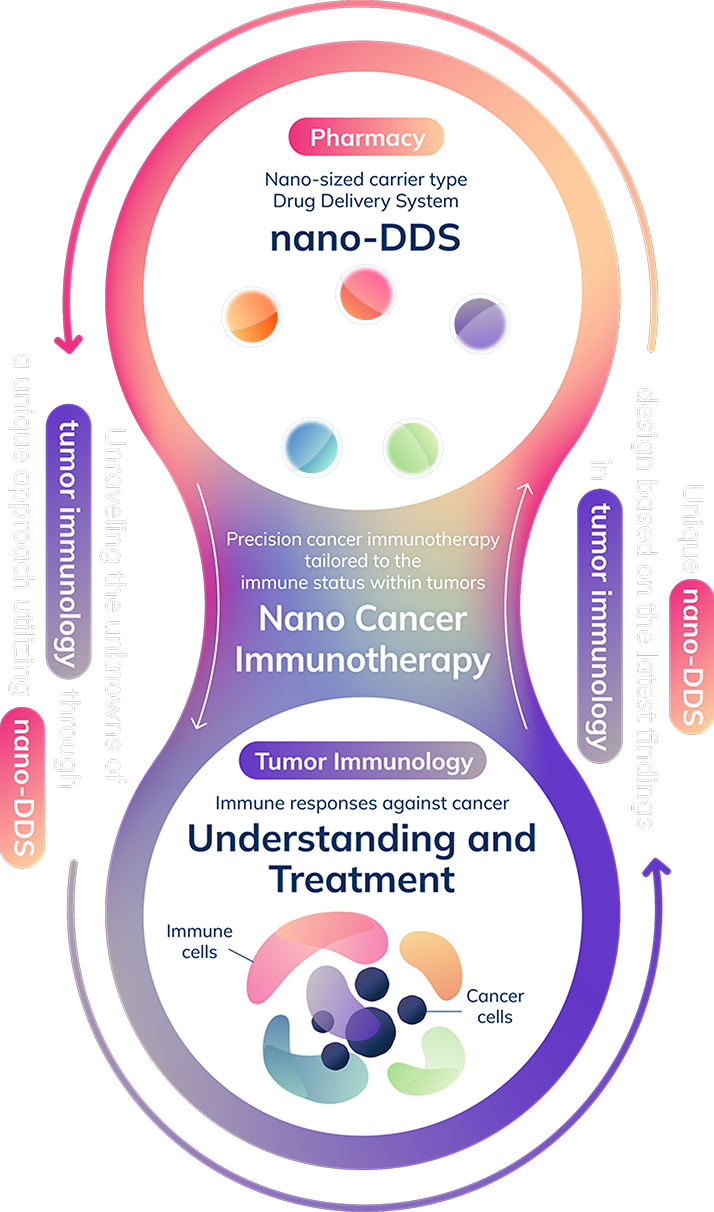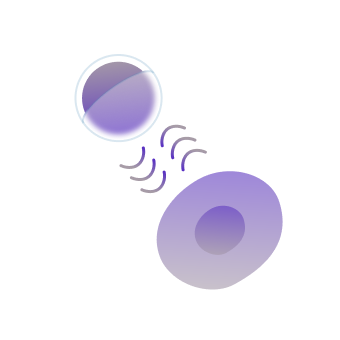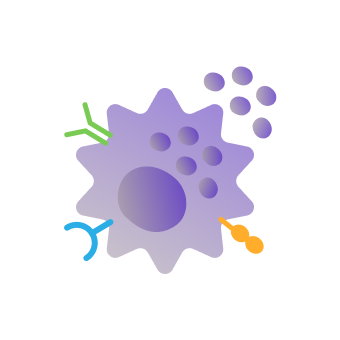Outline
Drug delivery systems (DDS) are pharmaceutical technologies designed to optimize the accumulation of drugs at the target site in terms of concentration and time. Our laboratory focuses on "nano-DDS," a DDS that utilizes nanotechnology such as nanoparticles. In simpler terms, we develop DDS technologies that can control the movement of drugs within the body by encapsulating them in nanoscale capsules. With a focus on cancer immunotherapy, we are synergistically driving both pharmaceutical research on "developing nano-DDS for controlling cancer immune responses" and oncoimmunological research on "elucidating cancer immune response mechanisms using nano-DDS" to create novel nano-immunotherapies.









